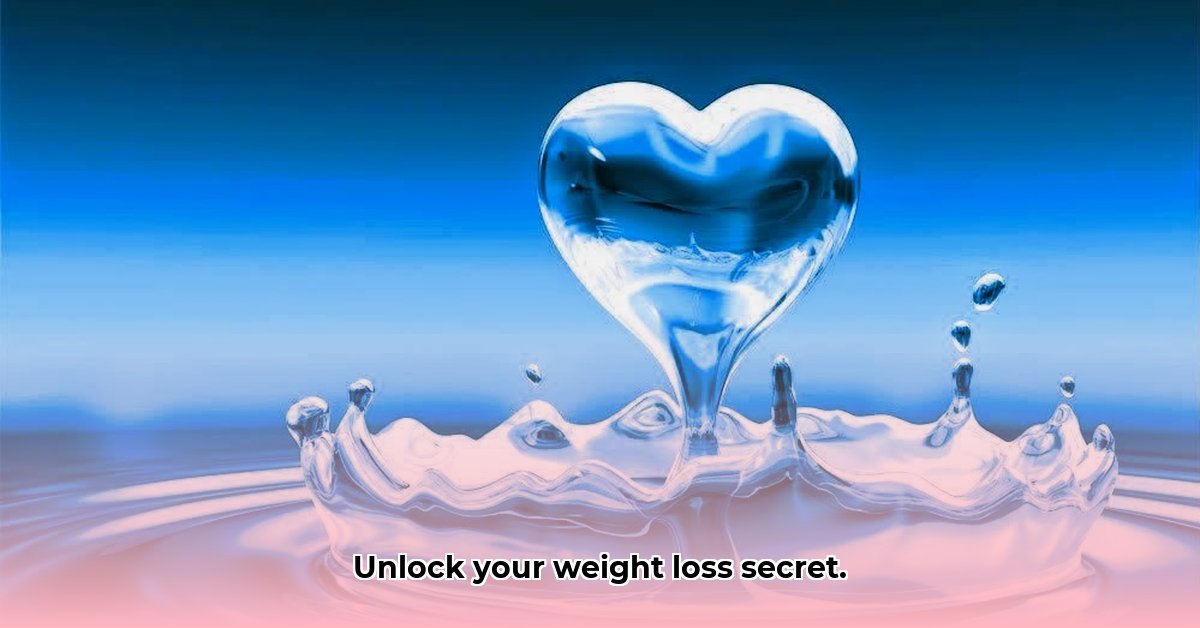
Ever wonder why you're not losing weight despite healthy eating and exercise? The answer might be simpler than you think: cellular dehydration. Forget the "eight glasses of water a day" myth—true cellular hydration is far more complex. This article explains the science behind cellular hydration, its impact on weight loss, and provides actionable strategies to optimize your hydration for better health and weight management.
Understanding Cellular Hydration
Imagine your cells as tiny sponges. They need water to function optimally, but this process isn't simply about volume. Efficient cellular hydration requires electrolytes—minerals like sodium, potassium, and magnesium—which act as “magnets,” pulling water into your cells (a process called osmotic pressure). Dehydrated cells hinder metabolic function, potentially impacting energy levels, appetite, and weight loss. Dr. Emily Carter, PhD, Registered Dietitian at the University of California, San Francisco, explains, "Proper hydration is crucial for cellular function, and inadequate hydration can negatively impact metabolic processes involved in weight management."
The Limitations of Plain Water
While plain water is essential, it's often insufficient for optimal cellular hydration. Plain water lacks the electrolytes crucial for efficient water absorption. It's like trying to fill a sponge already saturated with other substances; the new water simply sits on top. Many individuals experience persistent thirst due to inadequate electrolyte intake, not simply insufficient water.
Effective Strategies for Optimal Hydration
Here's a step-by-step guide to improving your cellular hydration and supporting your weight loss goals:
Prioritize Electrolyte-Rich Foods: Incorporate foods naturally rich in electrolytes. Bananas (potassium), spinach (magnesium), tomatoes (potassium), and oranges (potassium and other electrolytes) are excellent choices. These foods offer a balanced nutrient profile and improve cellular hydration naturally.
Strategic Electrolyte Supplementation (With Caution): Electrolyte supplements can be beneficial, especially after intense exercise or illness. However, always adhere to recommended dosages. Excessive electrolyte intake can be detrimental to health. Consult your doctor or registered dietitian before using supplements, especially if you have pre-existing conditions.
Exploring Hydrogen-Rich Water (Emerging Research): Some studies suggest that hydrogen-rich water might enhance cellular hydration and act as an antioxidant. However, further research is needed to confirm these benefits. Dr. David Lee, MD, a specialist in integrative medicine at the Mayo Clinic, advises "While the potential benefits of hydrogen-rich water are promising, more rigorous clinical trials are needed before widespread recommendations can be made." Always consult your doctor before making significant dietary changes.
Monitor Your Hydration: Pay attention to your urine color. Pale yellow indicates sufficient hydration; dark yellow suggests a need for increased fluid intake. Thirst is a crucial indicator; address it promptly.
Addressing Concerns and Misconceptions
Electrolyte Imbalances: Both insufficient and excessive electrolyte intake can be harmful. Follow recommended guidelines and consult a healthcare professional if you have concerns. Symptoms of imbalance include muscle cramps, fatigue, and nausea.
Hydrogen-Rich Water: While generally safe, its long-term effects require further investigation. Discuss its use with your doctor, particularly if you have pre-existing health conditions.
Cellular Hydration and Weight Loss: The Connection
Optimal cellular hydration and successful weight loss are interconnected. Proper hydration can support metabolic function, appetite regulation, and overall body composition. It's not a miracle cure, but a crucial component of a healthy lifestyle. Combine improved hydration with a balanced diet and regular exercise for optimal weight management.
Key Takeaways
- Cellular hydration goes beyond simply drinking water; electrolytes are crucial.
- Electrolytes facilitate efficient water absorption and cellular function.
- Whole foods provide bioavailable water and essential nutrients.
- A holistic approach—combining dietary adjustments, mindful supplementation (when appropriate), and hydration monitoring—is key.